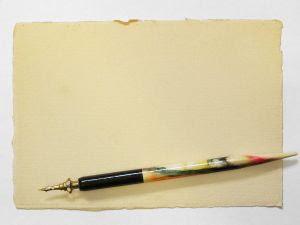
Writers are like plants. Some are hothouse flowers, delicate and sensitive: put them in a greenhouse and they’ll flourish: but place an orchid in a draught, and it soon topples over. Others are hardy perennials: providing they’re planted as per the instructions on the packet, they’ll keep growing back year after year, even after the toughest of winters. And then there are those tenacious miracle-plants – you know, the ones that can root themselves in the tiniest fissures of rocks, or anywhere where they can extract the smallest particle of nourishment from the air or the sun or the ground. Wherever there’s the whisper of potential, they’ll cling on for dear life.
There’s a discussion on WriteWords at the moment about how ‘cosy’ an atmosphere needs to be to support writing. Can an environment be too understanding and accepting? Do we need the harshness of rejection to grow, in the what doesn’t kill you makes you stronger – sense?
Environment is, of course, deeply important to writers. Not just the places we write about in our novels or short stories or poems, but the environments in which we place ourselves. For some, a café table with a latte and a laptop is the ideal environment. For others, a silent study with the door firmly closed and a ream of empty paper.
But I’m not just talking about physical spaces. We writers are sensitive to the invisible energies whispering around us, whether we know it or not: the weathers of our world. That silence at the end of the extract we’ve just read out: is it the silence of disapproval, surprise or realisation? The raised eyebrow, the exchanged glance: what’s being said, really? Is the critique we’re receiving engendering and appropriate, or subliminally cruel and undercutting?
I’m a great fan of the I Ching – the Chinese Book Of Changes. Written poetically and symbolically, it offers often obscure but usually excellent guidance to seekers. One line from its many pages has always remained with me:
Develop an atmosphere in which things can grow.
The environment which most nurtures you as a writer may be very different from the one which nourishes me. The important thing is to be aware of what you, as an individual, need - and to do all you can to cultivate such an environment for yourself. This includes the place you work in; those very personal little rituals that most writers have: the tin of biscuits on the desk, the hot water bottle in the lap, the pictures on the wall, the view from the window. It also includes the people you choose to share your writing with and the places you send your writing into. And, perhaps most importantly of all, there's the atmosphere you develop within yourself towards your writing.
Here's an example gleaned from the Strictly team. After a long bout of block and discouragement, Rod was at his wits end. How could he ever write again? Fortunately, his wise partner suggested to him that he return to the seed of his writing: the enjoyment of it. Since then, he's been using 'enjoyment' as a barometer for his writing activities, and can really see the green shoots of recovery. (Rod will be blogging more about this later on).
We are each unique. And it’s my opinion that an engendering environment – whatever that may be for you – must be found if we are to flourish and grow. As Barbara Sher, author of the wonderful Wishcraft – a free, online book about ‘growing your own best life’ writes:
‘If a seed is given good soil and plenty of water and sun, it doesn’t have to try to unfold…If a seed has to grow with a rock on top of it, or in deep shade, or without enough water, it won’t unfold into a healthy full-sized plant. It will try – hard – because the drive to become what you are meant to be is incredibly powerful. But at best it will become a sort of ghost of what it could be: pale, undersized, drooping…
In the age of ecology, we ourselves are the only creatures we would ever expect to flourish in an environment that does not give us what we need! We wouldn’t order a spider to spin an exquisite web in empty space, or a seed to sprout on a bare desk top… Put us in a nourishing environment, even late in a hard life, and we burst into bloom.’
In the immortal words of Morcambe and Wise: Give me sunshine. Whatever that means to you.















